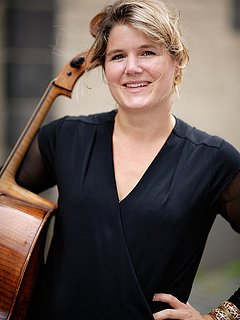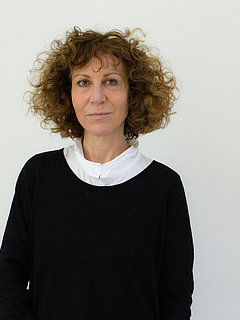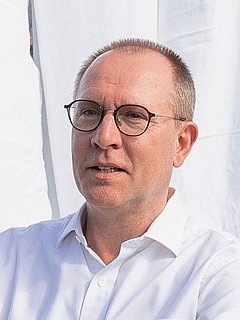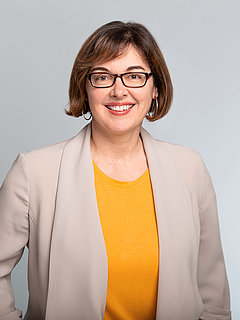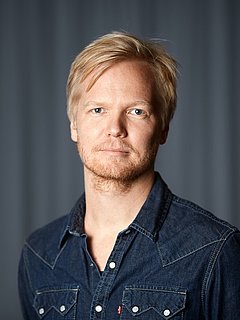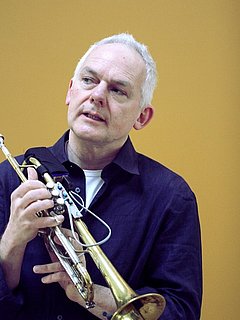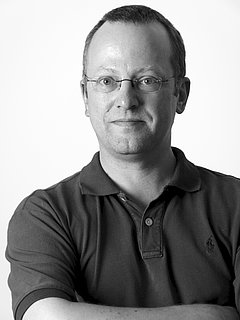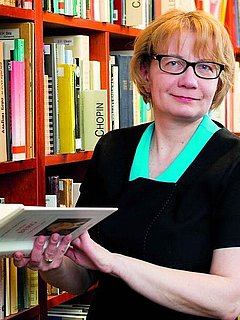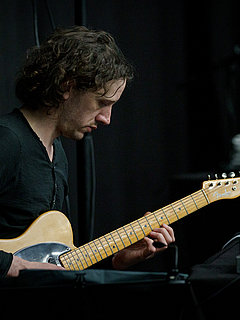Teams that run the project
The strategic partnership between seven European institutions brings together different backgrounds, multiperspective ideas, interdisciplinary approaches and individual experiences. In the RAPP Lab teams this diversity runs together like in a big melting pot. The RAPP Lab project consists of a steering group with members from all institutions under the coordination of the Hochschule für Musik und Tanz Köln and different working groups in all institutions.
Team
RAPP LAB Steering group
Evelyn Buyken is a research associate at the Institute for Historical Musicology at the HfMT Cologne and is also the content director and initiator of the inter-university Forum for Artistic Research. The musicologist conducts research at the interfaces between musicology and musical practice. One focus of her research is the musical culture of the 18th and 19th centuries. Her dissertation on the early reception of Bach in the Jewish salons of Berlin appeared in the "Beiheften zum Archiv für Musikwissenschaft" published by Franz Steiner-Verlag (July 2018) and was evaluated by an interdisciplinary team of reviewers in 2016. She is currently researching the body as a repository of musical knowledge. In doing so, she deals with historical material as well as empirical investigations that are oriented towards practice-based research methods from the field of artistic research. As a qualified cellist, she has specialised in the field of historically informed performance practice. She conducts the Cologne Baroque Orchestra, which she founded, and performs on national and international stages. CD recordings and radio recordings document her artistic work.
Together with her team she designs Lab 3 in Cologne.
Carla Conti is professor of Choir Conducting and Choral Repertoire at the Conservatory of Music ‘Santa Cecilia’ in Rome. She took her degree in Musicology (Alma Mater University in Bologna) and her Masters in Piano, in Choral Music and Choir Conducting, and in Music Education. Her fields of research: Gender issues; Neapolitan song; Leadership in music communities. Among her publications: a monograph Nobilissime allieve – della musica a Napoli tra Sette e Ottocento (Guida, 2003); De l’ hortus clausus à la chambre de musique: l’enseignement de la musique à Naples dans la première moitié du xixe siècle (Symétrie Lyon, 2016); Zeneide Lebzeltern. Musica e diplomazia al femminile nella Napoli dell’Ottocento (SEDM, 2021). She presented her research works at numerous international conferences/symposia (Helsinki, Bern, Vienna, St. Petersburg, Bruxelles). Among her participations in congress/conferences: 2012 Helsinki, “Kaija Saariaho’s ‘Quatre Instants’ Analysis”; 2017 Berna University) “Ma tu vulive ‘a pizza”. Neapolitan song and cultural tourism; 2017 Vienna, IKM / MDW “A dramatic song: consonances and dissonances of gender issues in the Reform of Music Education in Italy”; Cultural Forum, Saint Petersburg 2019 “Diplomacy and women's contribution to the preservation of musical heritage”; 2020 EhBInternational Days “Au choir come à la guerre. Impact of Gender and power dynamics in the choral conducting practice” (online Bruxelles); 2022 "Gender issues and digitalization in musical careers” at the Conference Ethics and Digitalization IV (online Berlin).
She created Lab 6 in Rome.
Sybille Fraquelli is an art historian. After studying at the universities of Bonn and Leicester (England), she worked as an editor at an international non-fiction publishing house. In 2006, she completed her doctorate at the Rheinische Friedrich-Wilhelms-Universität with a thesis on neo-Gothic architecture in Cologne, for which she received the Paul Clemen Scholarship in 2006. From 2008 to 2010, as a scholarship holder of the Fritz Thyssen Foundation, she researched the building history and furnishing measures of the 19th century in the Romanesque churches in Cologne. Since 2010, she has been working at the Cologne University of Music and Dance for the university cooperation "Kolleg der Künste" - a unique association of all art and music colleges in North Rhine-Westphalia for interdisciplinary project work in Montepulciano. Since January 2021, she has been supervising the implementation of the RAPP Lab as a research assistant.
Cellist and conductor, Michelangelo Galeati graduated at the Conservatorio "Rossini" in Pesaro, at the Accademia Nazionale di Santa Cecilia in Rome, graduated at the DAMS at the University of Bologna, graduated in conducting at the Conservatorio di Santa Cecilia Rome with Dario Lucantoni, and obtained a Master's degree on the languages of the 20th century at the University of Tor Vergata Rome. His activity, as soloist, conductor and member of the chamber group Polimnia Ensemble, has taken him to the major Italian and international halls. Since 2007 he regularly conducts the Berliner Syphonikern orchestra in Berlin, including a long tour in China as conductor alongside Lior Shambadal and regularly followed with annual tours. He has recorded for Fonit-Cetra and Musikstrasse, also recording world premieres of composers such as Clementi, Colasanti, Bussotti and Pennisi. He has taken part in numerous television and radio programmes on the main networks such as RAI1, RAI2, RAI3, Radio Vaticana and Telemontecarlo, where his compositions have also been broadcast. Michelangelo Galeati has long been dedicated to the discovery, revision and dissemination of the lesser-known repertoire of the Italian 19th century. He has recorded three monographs on the chamber music of Rossini, Donizetti and Mercadante. In 2017, in cooperation with Ufficio Scolastico della Campania, he conducted Boheme in concert form in Sala Scarlatti with the Orchestra of San Pietro a Majella. In the same year, he was artistic director of the project "Il canto in lingua tedesca" funded by SIAE in cooperation with Paulina Abber and Lior Shabadal. He was recently invited to Russia to conduct L. V. Beethoven's Choral Fantasy op.80 with the Penza Philharmonic Orchestra. He teaches at the Santa Cecilia Conservatory in Rome.
Together with Carla Conti and their team he prepares Lab 6 in Rome.
Stefan Gies has been the Chief Executive of the AEC since September 2015. His work focuses on networking with other organisations active in the fields of music, art and higher education at European and international level, as well as on lobbying the institutions of the European Commission and the European Parliament. The key topics he is currently working on include: campaigning for the recognition of the specific features of artistic education; ensuring the long-term preservation of adequate framework conditions to maintain a musical life and cultural offers; promotion of musical education at all levels and according to diverse needs; establishing artistic research and facilitating cross-border mobility. Stefan studied viola, composition, musicology and music education at the Musikhochschule Freiburg, but also performed in the fields of rock and jazz music. He worked as a classroom and instrumental teacher and got his doctorate degree in music pedagogy. Stefan does research and publishes on theories of musical education and the history and constitution of the institutions.
Grydeland plays the electric and the acoustic guitar, banjo, pedal steel guitar, and various electronics. He is chiefly operating in the realm of contemporary improvised music. Grydeland’s main groups are Huntsville (Hubro and Rune Grammofon) and Dans les arbres (ECM, Hubro, SOFA)–nominee for Nordic Council Music Prize 2015. His longtime collaborators are Christian Wallumrød, Xavier Charles, Ingar Zach, and Tonny Kluften. He has also performed and/or recorded with artists like Hanne Hukkelberg, Nils Petter Molvær, David Sylvian, Henry Kaiser, Tony Buck, Tony Oxley, Paul Lovens, Thomas Lehn, Axel Dörner, Andrea Neumann, Rhodri Davies, Mazen Kerbaj, Christel Alsos, Randi Tytingvåg, Morten Qvenild/Frode Grytten. Guesting musicians with the groups Huntsville and Dans les arbres, both in concert and in the studio have been Nels Cline, Glenn Kotche, Thurston Moore, Yuka Honda, Darin Gray, Otomo Yoshihide, Jim O’Rourke, Yumiko Tanka, among others. He has toured and performed with his main groups and other groups at festivals in Europe, Asia, Australia, North- and South America over the last 20 years. Concerts and album releases have been broadcasted in BBC, Radio France, Deutsche Rundfunk, ABC Radio Australia, Swedish Radio, Norwegian Broadcasting and more. Grydeland has released and contributed to over 40 albums with his main groups, short term ensembles, solo and with various artists. Several of the albums are recorded, edited and produced by Grydeland. His solo debut Bathymetric Modes (Hubro) was released in 2012 and his second solo Stop, Freeze Wait, Eat (Hubro) was released in 2015. Grydeland also composes music for theatre and dance. His latest work was for The Norwegian National Company of Dance – Carte Blanche premiered at Bergen International Festival in 2015 and toured in Norway. He has composed music for several pieces performed at Dansens hus–National House for Dance in Oslo and National Theatre in Oslo. In 2015 Grydeland finished his artistic research fellowship project at The Norwegian Academy of Music in Oslo, where he currently works as Associate Professor in the field of musical improvisation.
Together with Darla Crispin and their team he designed Lab 1 in Oslo.
Jonathan Impett is Director of Research at the Orpheus Institute and Associate Professor at Middlesex University (London, UK). Jonathan’s professional and research activities cover many aspects of contemporary musical practice, as trumpet player, composer and theorist. He also leads the research cluster “Music, Thought and Technology” at the Orpheus Institute. His research is concerned with the discourses and practices of contemporary musical creativity, particularly the nature of the contemporary technologically-situated musical artefact. In the field of historical performance, he is a long-standing member of both The Orchestra of the Eighteenth Century and The Amsterdam Baroque Orchestra. He is also a member of the experimental chamber ensemble Apartment House. As a soloist he has given premieres of works by composers including Scelsi, Berio, Harvey and Finnissy. He directed the live electronic chamber ensemble Metanoia, and was awarded a Prix Ars Electronica for his development of the metatrupet. His compositions have been broadcast throughout Europe. As an improviser he has played with musicians as divers as Paul Dunmall and Amit Chaudhuri. Work in the space between composition and improvisation has led to continuous research in the areas of interactive systems and interfaces. The current ‘active sound space’ project uses ALife populations of wave models to create interactive works combining aspects of composition and sound art. A monograph on the music of Luigi Nono has recently been published by Routledge, and Jonathan is currently working on a project considering the nature of the contemporary musical object, ‘The work without content’.
Together with his team he designed Lab 2 in Oslo.
Johannes Kretz is a composer, electronics performer and artistic researcher. He is teaching computer music, composition, music theory and artistic research at mdw – University of Music and Performing Arts Vienna, were he is also heading the Artistic Research Center (ARC). He is project leader of “creative (mis)understandings”, a 3-year artistic research project funded by FWF-PEEK.
As artist he is founding member of NewTonEnsmble Vienna, of the European Bridges Ensemble, the international composers group PRISMA, and of ikultur.com and co-curator of aNOther festival Vienna together with Wei-Ya Lin.
Scholarships and Awards: e.g. Austrian Federal Grant 1997, Stiftung Delz (CH, 2001), Theodor Körner Prize 2004
Commissions of work & performances at/with National Theater Hall, Taipei, Wien modern festival, Festival Ars Electronica, Konzerthaus Wien, Eclat festival Stuttgart, Klangforum Wien, Ensemble On Line, Vienna Flautists, quartett22, Internationale Lemgoer Orgeltage, Haller Bachtage, Triton Trombone Quartett, Wiener Kammerchor.
Performances in Austria, Germany, Poland, France, Czechia, Hungary, Turkey, Latvia, Lithuania, Argentinia, Mexico, Canada, USA, Japan, South Korea, Taiwan, China, Uzbekistan, Iran, India.
Together with his team he designs Lab 4 in Vienna.
Kristel Pappel, Estonian musicologist, special research areas (1) history and theory of the opera and musical theatre, (2) history of the nineteenth-century music. Studied violin and musicology at the Estonian Academy of Music and Theatre (EAMT), PhD 2004 („Opera in Tallinn in the Nineteenth Century“). Professor for music history and since 2015 Head of the Centre for Doctoral Studies at the EAMT. Several research scholarships (Stadt Lübeck; Forschungsinstitut für Musiktheater, Universität Bayreuth; International Wagner Society; Viro-Säätiö Helsinki etc.). 2011–2014 guest lecturer for musical theatre at the Vienna University; guest seminars at the universities of Göttingen, Dresden, Tartu etc.
Publications: several articles in Estonian, German and English; editor (with Michael Heinemann) of the essays by Joachim Herz (3 volumes, 2010–2012, Köln) and of the anthologies about August von Kotzebue (co-operation with the Berlin-Brandenburgische Akademie der Wissenschaften, Serie Berliner Klassik, vol. 22 (2016) and vol. 25 (2017)).
See also here
Together with Theodore Parker and their team she concepts Lab 5 in Tallinn.
Theodore Parker is a guitarist who works primarily in the fields of Free Improvisation and Experimental Music. Currently his focus is on live electronics as well as site specific sound. He is a member of Estonia’s first live electronics ensemble (EMA) and has created music for theatre and dance performances. His research activities pertain to the use of site specificity as part of both the aesthetic and music making processes involved in real-time music making. Currently he lectures at the Estonian Academy of Music and Theater on the topics concerning free improvisation and artistic research.
Together with Kristel Kappel and their team he designs Lab 5 in Tallinn.
